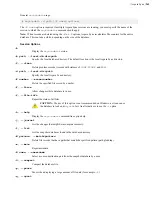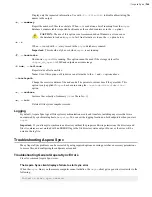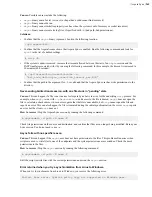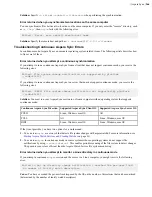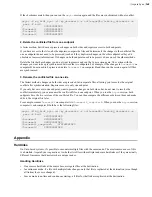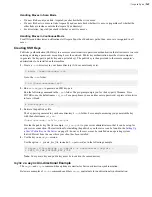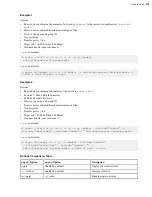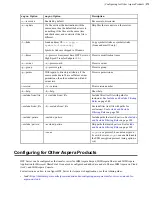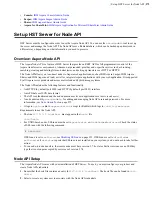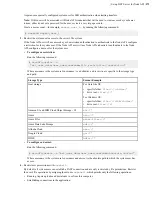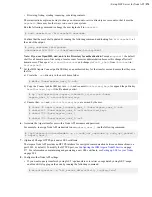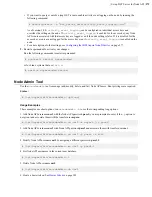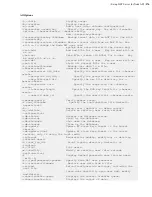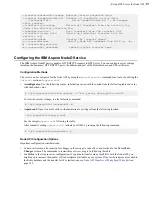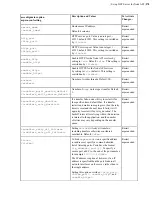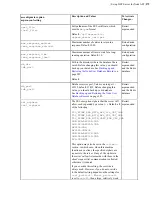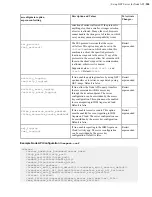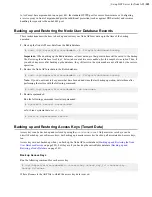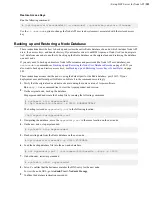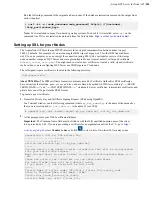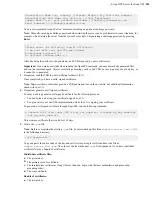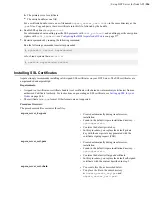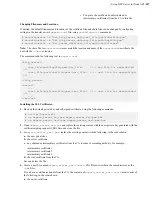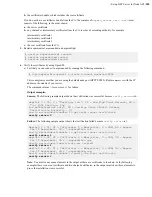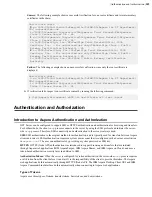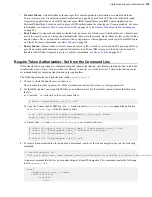
| Set up HST Server for Node API |
275
• If you want to query events by using GET /events, enable activity event logging on the node by running the
following command:
# asconfigurator -x "set_server_data;activity_event_logging,true"
As of version 3.8.0,
activity_event_logging
can be configured in individual access keys and
overrides the setting on the node. If
activity_event_logging
is enabled for the access key, any Node
API events associated with that access key are logged even if the node setting is false. If it is disabled for the
access key, events are not logged for the access key even if
activity_event_logging
is enabled on the
node.
• For a description of other settings, see
Configuring the IBM Aspera NodeD Service
on page 277.
9.
Restart asperanoded to activate your changes.
Run the following commands to restart asperanoded:
# systemctl restart asperanoded
or for Linux systems that use
init.d
:
# service asperanoded restart
Node Admin Tool
Use the
asnodeadmin
tool to manage (add, modify, delete, and list) Node API users. Root privileges are required.
Syntax:
# /opt/aspera/bin/asnodeadmin [
options
]
Usage Examples
These examples use short options; run
asnodeadmin -h
to see the corresponding long options.
1. Add Node API username
usr1
with the Node API password
pass1
(you are prompted to enter if the
-p
option is
not given) and associate them with the transfer user
aspera
:
# /opt/aspera/bin/asnodeadmin -au usr1 -x aspera [-p pass1]
2. Add Node API username
usr2
with Node API password
pass2
and associate them with transfer user
root
:
# /opt/aspera/bin/asnodeadmin -au usr2 -p pass2 -x root
3. Modify Node API username
usr1
by assigning a different password,
pass1.1
:
# /opt/aspera/bin/asnodeadmin -mu usr1 -p pass1.1
4. List Node API usernames in the current user database:
# /opt/aspera/bin/asnodeadmin -l
5. Delete Node API username
usr1
:
# /opt/aspera/bin/asnodeadmin -du usr1
6. Create a bearer token: See
on page 305.



